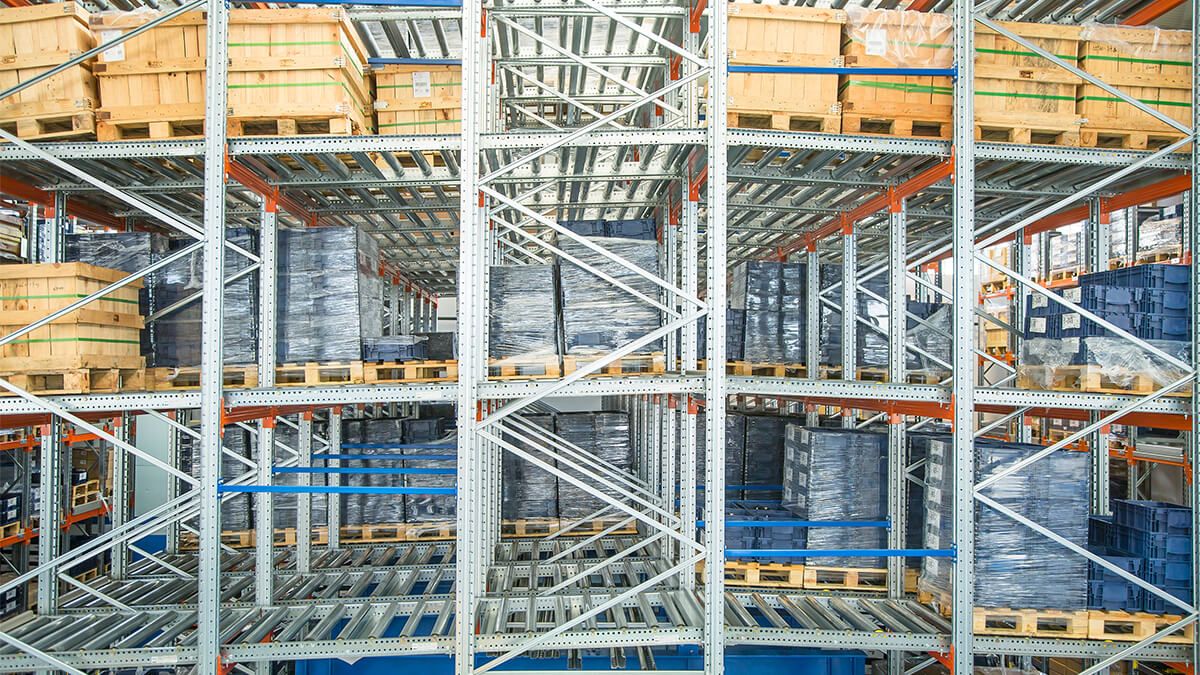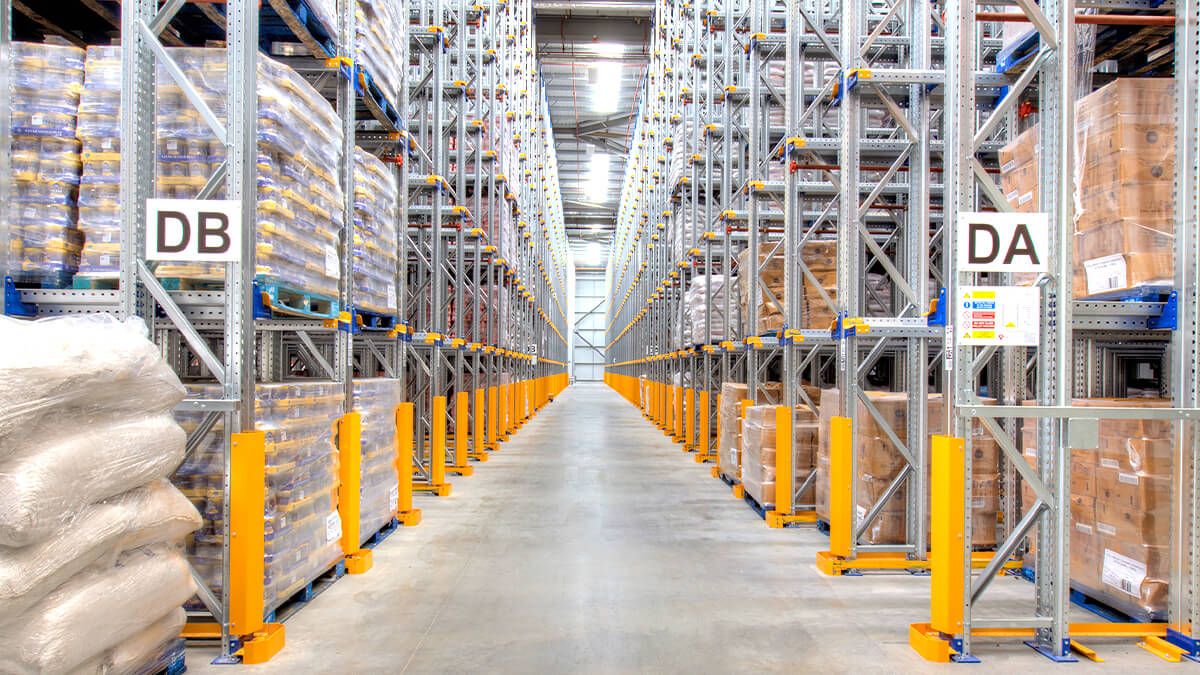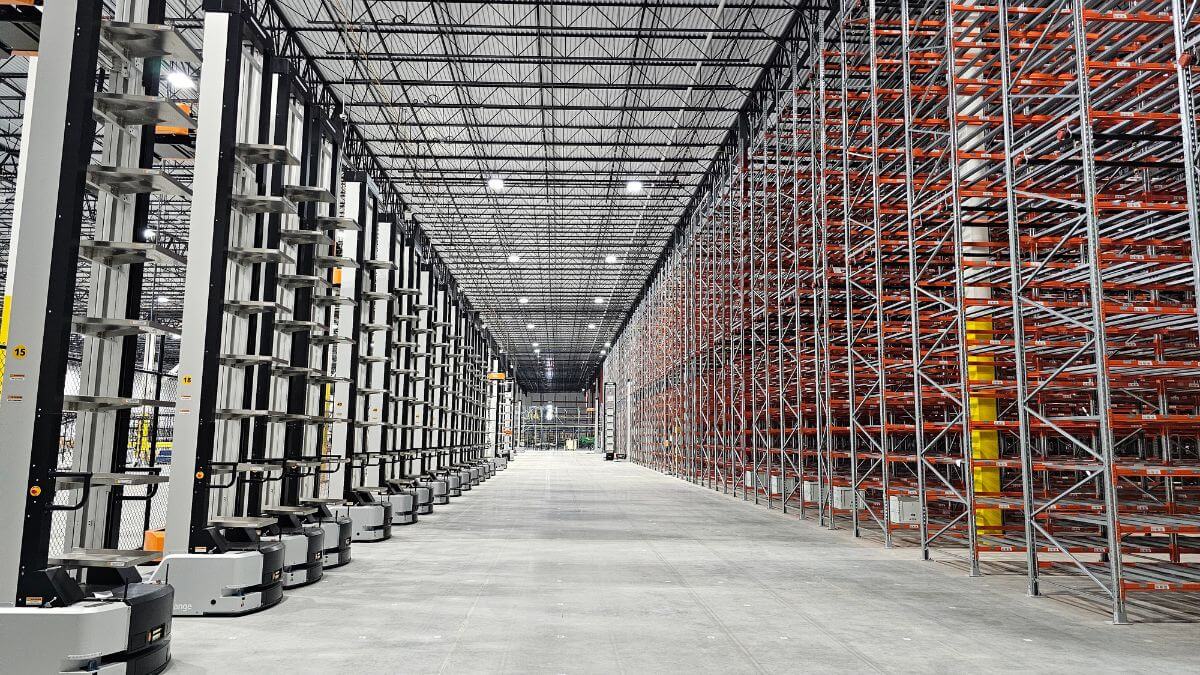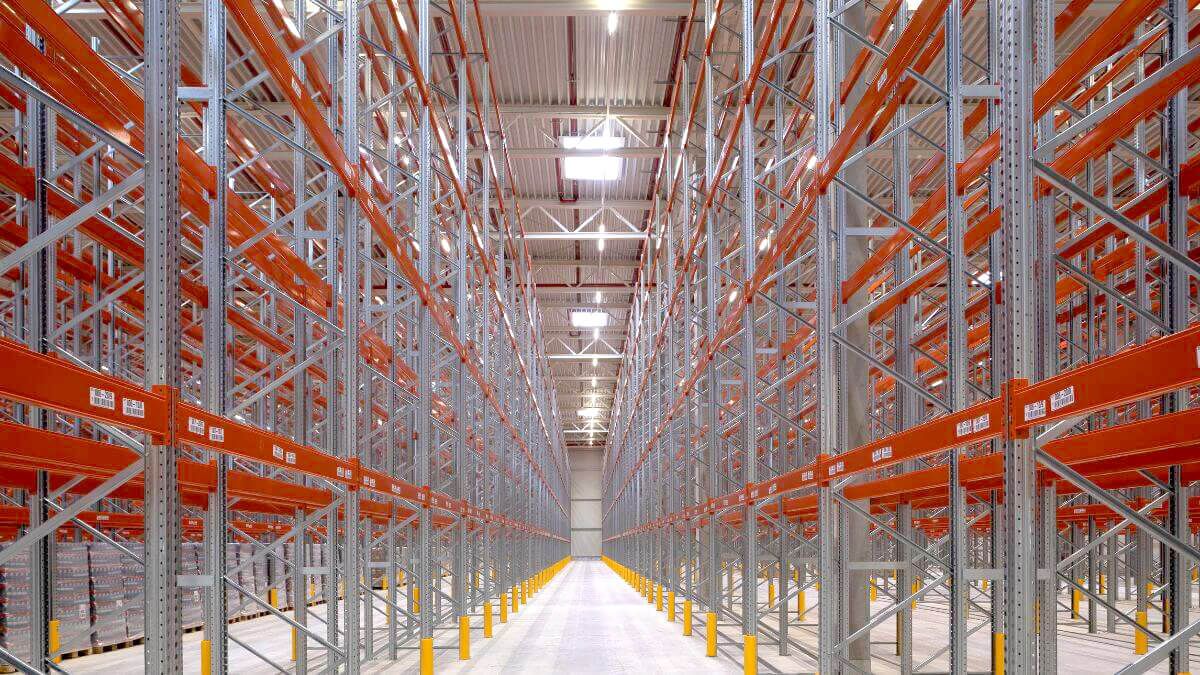LIFO (Last in, First out) stock management for warehouses is the opposite method to FIFO, whereby the last unit load to enter the warehouse will be the first one out.
The LIFO method prioritises the last product batches to enter the warehouse, while goods deposited previously on the pallet racking systems will be stored until there is no other unit load in front of them.
Being the reverse method to FIFO, the products for which it is used and the characteristics of the racking systems developed for this method completely differ from one another.
WHEN IS THE LIFO METHOD USED?
The LIFO method, less used than FIFO, must be implemented in warehouses with homogeneous products, which do not lose value over time and which do not expire or are perishable.
Once again, we see the reverse nature compared to the FIFO method, as it meets storage needs not covered by this method.
Since LIFO prioritises the product that has most recently entered the warehouse, unit loads stored previously will spend more time in stock and should therefore be products that do not expire or lose value over time.
A classic example of an ideal product for LIFO management, for being homogeneous and non-perishable products, are building materials such as ceramics, glass and stone materials.
However, whenever possible it will always be more advisable to use the FIFO method, as it generates more efficient stock turnover and allows us to dispose of the oldest product which is an advantage even with homogeneous and non-perishable products such as those mentioned.

LIFO METHOD ADVANTAGES AND BENEFITS
Some of the advantages of LIFO management in a warehouse are:
- Reduction in distances travelled by operators and forklifts in the warehouse, by working in the same aisle for loading and unloading.
- Higher occupancy rate by using only one loading aisle.

WHAT STORAGE SYSTEMS ALLOW LIFO MANAGEMENT?
The common feature with storage systems designed to facilitate LIFO warehouse management method is that the area for loading and unloading goods is from the same aisle.
While its reverse method, FIFO, performs the loading task at one end and unloading at the other, with LIFO, the operator will perform both tasks at the same end, considerably reducing distances travelled in the warehouse.
Storage systems with this common feature and which are therefore ideal for the LIFO method are:
Push Back Live Storage (LIFO):
- High-density live storage system which pushes goods in order to store pallets at the back. The palletised load moves along shuttles or rollers, and loading and unloading is performed from the same end.
Drive In Compact Pallet Racking Systems:
- This is a storage system which compacts work aisles and has a single access aisle, so that the forklift can enter the racking unit and load and unload the goods.
AR Shuttle Racking Systems for Pallets:
- This is a high density semi-automatic storage solution that uses motorised pallet shuttles to move the unit loads autonomously along the racking. It is a very versatile system as it allows both LIFO and FIFO warehouse management, depending on how the system is designed.
If you need any advice on deciding which AR Racking LIFO storage system is best suited to the needs of your company and warehouse, please send us your query here and our professionals will advise you without any obligation.




